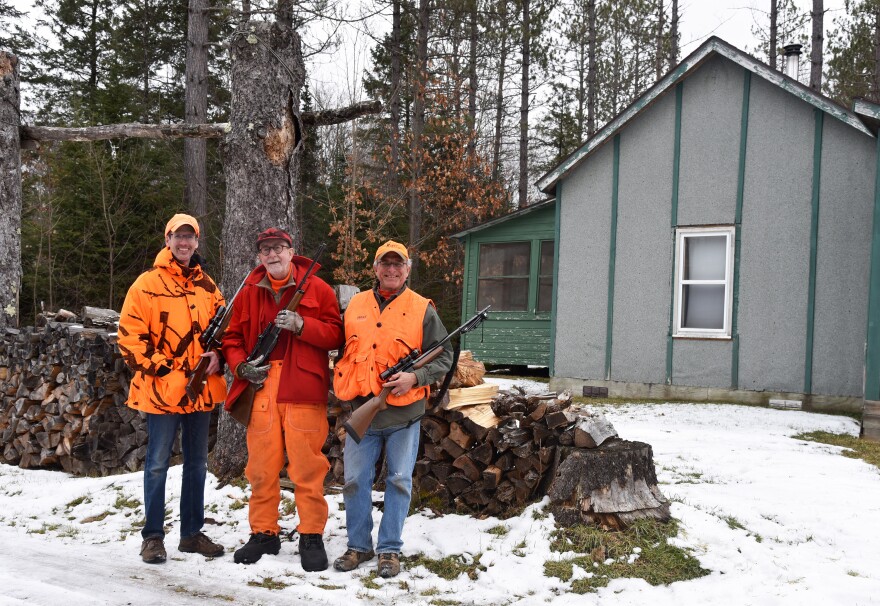Perhaps no creature on the Wisconsin landscape elicits more extreme reactions than the gray wolf.
The once nearly extinct population has rebounded, and while some believe there should be no wolf hunting season, a 2011 Wisconsin state law requires an annual harvest unless the wolf is under federal protection. The debate has intensified this year after a very brief and chaotic hunt happened in February, which saw 218 wolves killed, surpassing the quota by over 80% in under 72 hours.
READ: Wolf Hunt Approved In Wisconsin As Legal Fight Continues
Now the Wisconsin Department of Natural Resources (DNR) is inviting the public to help update its management strategy and weigh in as the agency begins to shape its wolf management plans for the coming decade. The deadline for public comment is May 15.
Now-retired wildlife biologist Adrian Wydeven led the DNR‘s wolf restoration program and says that February's hunt, which took place during the wolf's mating season, could have a lasting impact on the population.
“Where you’re removing adults males that are holding down territories and females that have just probably bred, the dissolvement of packs is likely to occur. Packs are going to lose their ability to raise pups,” he says.
Wydeven is part of a group called Wisconsin’s Green Fire. It cites multiple missteps in the February wolf hunt, including not consulting with the Ojibwe Tribes.
READ: Bad River Band Wildlife Specialist Says State Leaders Need To Learn From Tribes On Wolf Relationship
“They do have treaty rights, they have a right to the wildlife, whether it’s the harvest of that wildlife or the persistence of those wildlife, so keeping them on the landscape. And we need to honor those rights those treaties — that’s critically important,” he says. “The potential of maintaining healthy wolf populations on reservations could be threatened when wolves get killed right outside a reservation.”
Wydeven says as the DNR works to mend bridges with the Ojibwe Tribes, and investigates the long-term impacts of the February hunt, it should set the next harvest quota as small as possible.
“Ultimately, the big decision on a wolf plan will be what people’s opinions are, where they are willing to accept wolves and where they are not willing to accept wolves, and the numbers people would like to have on the landscape,” he says.
Eau Claire-based outdoors writer Patrick Durkin has followed and written about Wisconsin’s wolf story for decades. He even participated in the 2012 hunt.

“I never, as it turns out, succeeded, but I think as an outdoor writer, it’s important to at least go out and try these things and at least get a feel for them, to at least appreciate the difficulty of the task. It’s a skill set that I lack. Trappers, for instance, I always think trappers are probably the most tuned in, really aware on the landscape,” says Durkin.
He thinks the state did a good job running its first three hunting seasons in the early 2010s, but says he watched the February hunt unfold with disbelief.
“You could not look at our record those first three wolf seasons and say we didn’t have control of things, we really did. But then when this last season went on with this ‘We’d better get ‘em while we can,' that was really the attitude that came through,” he says.
The way University of Wisconsin-Madison environmental studies professor Adrian Treves sees it, the DNR needs to apply much more science to its wolf management.
“The public should oppose any further wolf hunts because we simply do not know what we are doing. Despite all of the rhetoric and talk about good science being used, in fact, the best available science was not fully used the way it should have been,” he says.
As an example, Treves points to a key argument for Wisconsin’s mandated hunt — the need to control livestock and pets being injured or killed by wolves.
"There’s simply no evidence for public hunting and trapping in reducing livestock losses and our research in many parts of the world shows that we have super effective nonlethal methods. All of this is peer-reviewed, published,” he says.
Can the DNR blend the scientific-evidence based and the raw human experience into is wolf management plan? The agency says the public will have a chance see for itself before it seek the Natural Resources Board’s approval in about a year.
Have an environmental question you'd like WUWM's Susan Bence to investigate? Submit below. (If the module isn't appearing, please refresh the page.)
_






